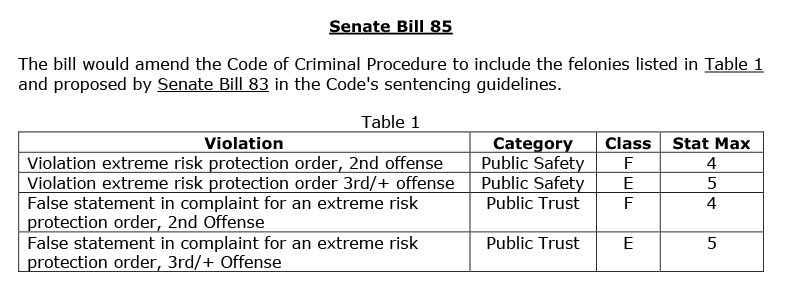Michigan Governor Whitmer signed a red flag law on Monday, May 22, 2023. The new law aims to stop people from using guns to harm themselves, or others. One way the legislation intends to prevent shootings is by confiscating guns from “at-risk” folks. The at-risk individuals will be identified through Extreme Risk Protection Orders. Additionally, restrictions may be placed on purchasing firearms for certain individuals. The new red flag law, also known as Senate Bill 83 takes effect 90 days after the legislative session is over. As a result, the new laws take effect later.
What is an Extreme Risk Protection Order?
An Extreme Risk Protection Order (ERPO) is a civil order issued by a court when a person is deemed at risk of violence to self or others. The court considers various factors when deciding whether or not to issue an ERPO. The court may look at the following:
- Does the individual have a history of violence?
- Have there been threats of violence?
- Have there been previous risk protection orders?
- Have there been restraining orders against this person?
- Is mental illness involved?
- Is there evidence of excessive alcohol or drug use?
- Was there any unlawful use of a weapon?
- Who is filing this request?
The court will interview any relevant family members, or friends. If the court decides to issue the ERPO, guns must be handed over immediately, or within one day. The court determines when the guns are handed over. The individual must comply, or face jail time and an extension of the ERPO. During the duration of the order, the person may not purchase any firearms. Additionally, they may not possess anyone else’s firearms, or transport firearms. It’s important to note that ERPO’s do not last forever. In other words, the court places a time limit on the order.

Who Can Ask For an ERPO?
There are limits on who can request an ERPO. For example, a former dating partner that is angered over a break up may not use the situation to restrict your second amendment rights. In fact, anyone filing a false request faces legal consequences. Petitions may be filed by a concerned spouse, parent, mental health professional, school administrator, former dating partner, roommate, former spouse, or law enforcement person. In fact, law enforcement may place an emergency request over the phone if they suspect serious danger. It remains vital to remember the seriousness of these orders. Filing one may save your life or another person’s life. On the other hand, there is great danger when dealing with an unstable person. So, contact an attorney before filing any orders.
Additional New Gun Laws in Michigan
Michigan recently passed SB 79 which states that guns must be safely stored if you know a minor will be on the premises. Under this bill, guns must be in a locked safe or container. If the gun is not locked in a storage unit, the weapon must be unloaded and have some type of anti-firing device. If the home has no minors, these rules do not apply. However, if a minor obtains a loaded gun and injures themselves or others, parents, or the homeowners face possible jail time and fines. Additional recent gun legislation includes:
- SB 76- Extends background checks to all firearms and includes private transfers
- SB 77- Changes “pistol” to firearm
- SB 78- Extends punishment for forgery on pistol license sales and applications to include all firearms…still up to four years in prison
- SB 79- The safe storage law discussed above
- SB 80- Possible 15 years in prison/$10,000 fine if minor obtains gun and kills self or others
- SB 81 and SB 82- Tax exemptions for gun storage units
Numerous bills remain in the House awaiting support as of June 2023. It remains important to understand the new laws that take effect soon. As always, contact an experienced criminal defense attorney if you have questions regarding Michigan’s new laws.




